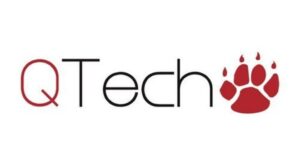Key Moments:
- Mexico’s gaming sector is set to experience a tax increase from 30% to 50% next January alongside tighter anti-money laundering measures.
- The United States continues its cautious expansion of regulated sports betting, while facing diverse state-by-state compliance requirements.
- Ontario leads Canada’s regulated gaming market, and Alberta is expected to adopt a similar, lighter regulatory model in the future.
Expert Insights on Regulatory Developments
A high-profile panel at SiGMA Central Europe in Rome provided a thorough look into the changing regulatory climate in North American gaming. Supported by WH Partners and taking place on the Stage 1 Regulatory Briefing, the panel featured prominent legal professionals discussing how gaming companies are adjusting to ongoing changes in rules, compliance obligations, and cross-border operational challenges.
Regional Regulatory Approaches
Rodrigo Galván Graf highlighted the gradual progression of Mexico’s gaming regulations, emphasizing a permit-based system and a significant upcoming tax hike from 30% to 50% due next January. These reforms coincide with increased obligations targeting anti-money laundering and counter-terrorism financing. Galván Graf also stressed that “Newer forms such as sweepstakes and skill-based games challenge markets to balance innovation with regulation.”
In the United States, David Yatom Hay described the industry’s “careful expansion” following the repeal of PASPA, with states introducing sports betting regulation at their own pace and weighing the financial impacts of potential iGaming adoption. He drew comparisons to Europe, where rules are becoming increasingly stringent and markets more restrictive for operators.
Ron Segev provided an overview of Canada’s market, noting significant differences between provinces. Ontario features a regulated system open to operators, while most other provinces maintain a monopolistic structure that propels the growth of a gray market. Alberta is expected to transition to a regulatory approach similar to Ontario’s, which may present new opportunities and easier compliance for operators.
Compliance and Cross-Border Licensing
Panelists pointed out that managing multi-state licenses in the US represents a major operational and compliance challenge due to significant regulatory variations. David Yatom Hay mentioned that Europe’s fragmented regulatory environment compounds market entry complexity, while Ron Segev indicated that Alberta’s future framework could temporarily acknowledge Ontario licenses but may differ in advertising rules as it evolves.
| Region | Regulatory Approach | Key Details |
|---|---|---|
| Mexico | Permit-based, evolving regulation | Tax increase to 50% planned, AML focus, new bill pending |
| United States | State-specific regulation | Cautious sports betting expansion, varying compliance requirements |
| Canada | Split market: regulated (Ontario) vs. monopoly (other provinces) | Alberta may adopt Ontario’s lighter regulatory framework |
Product Innovation Under Scrutiny
The discussion underscored that products such as sweepstakes, predictive markets, and skill-based games drive innovation yet attract intense regulatory attention. In Mexico, regulatory focus remains on the legitimacy of permits rather than on product diversity. Meanwhile, sweepstakes are legal but strictly monitored in Canada. David Yatom Hay remarked, “Highly restrictive environments push providers to innovate and challenge traditional boundaries.”
The group also addressed trends in payment methods, notably around cryptocurrency. David Yatom Hay stated that wider crypto adoption would depend on robust KYC and AML compliance. Ron Segev commented, “Stablecoins are accepted in US casinos, while Canada maintains stringent policies on direct cryptocurrency use.” Pending legislative developments in Mexico may further shape rules on crypto licensing and taxation, and Ontario restricts direct crypto payments, only permitting deposits via pre-approved intermediaries.
Market Integrity and Proactive Risk Management
The panelists turned attention to the importance of operational integrity, especially in response to controversies related to proposition and novelty bets. David Yatom Hay emphasized the need for gaming operators to act proactively against potential fraud, warning that regulatory intervention often follows public scandal. Ron Segev pointed out that “Cooperation among sportsbooks, betting integrity platforms, and leagues is necessary to prevent abuse,” reinforcing the value of industry-wide collaboration.
This exchange at SiGMA Central Europe offered vital guidance for companies, regulators, and investors engaged in the intricate North American gaming landscape. Additional sessions were announced for those interested in further analysis of international gaming trends.
Responsible Participation Disclaimer
The content on this page is provided strictly for informational purposes and targets B2B audiences. SiGMA Group holds no liability for business activities, agreements, or outcomes between any parties during or after this event. Participants are solely responsible for adhering to all relevant legislation and licensing rules, including those of the Agenzia delle Dogane e dei Monopoli (ADM) in Italy. All events are limited to individuals aged 18 and above.
- Author


